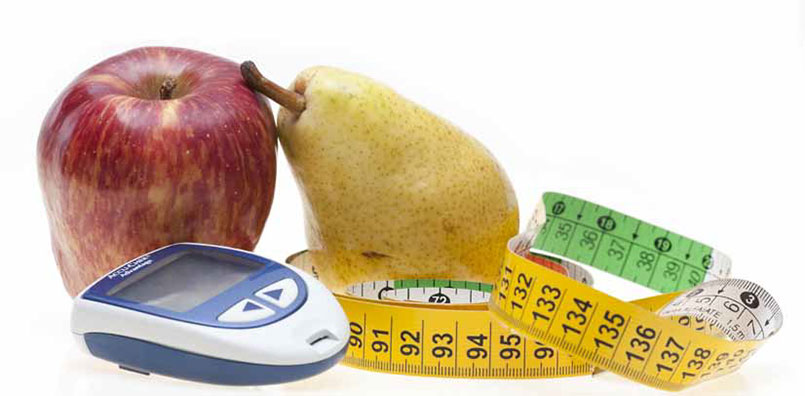The incidence of diabetes is increasing here in Georgia and around the world at an alarming rate.
Type 1 diabetes usually occurs in childhood. It is an autoimmune attack against the pancreas, the organ responsible for producing the hormone insulin, which in turn regulates the body’s blood glucose level.
Type 2 diabetes is the more common form and occurs when weight gain and abdominal fat lead to insulin resistance and overwhelm the body’s ability to produce enough insulin. Type 2 diabetes also goes by the term non-insulin dependent diabetes (NIDDM) or adult onset diabetes.Elevated blood sugars over time lead to many serious problems such as heart disease, stroke, renal failure, cataracts, blindness, peripheral neuropathy and amputations.
Well over half of my patients have or are at risk for diabetes!The first step towards prevention of diabetes is to know your risk. If you have a family history of diabetes or a personal history of gestational diabetes you are at increased risk. If you are of African American, Hispanic or of South Asian origin you are also at increased risk.
Such individuals should get a fasting blood glucose and a hemoglobin A1c checked (this is a 3 month average of your glucose control). A fasting glucose less than 100 is normal while greater than 126 represents diabetes. In between is what is known as impaired glucose tolerance or “prediabetes”. Similarly, an A1c of 5.6% or less is normal while 6.5% or more represents diabetes.
In between once again is the pre-diabetes range.Dietary measures are the first step to improving glucose control. Many websites such as www diabetes org can provide helpful guidance along with a dietician. In general cutting back on carbohydrates is essential. When choosing carbohydrates those with a low “glycemic index” (55 or less) are recommended.
These include beans, small seeds, whole grains, fruits and vegetables. The lower the glycemic index the longer it takes the gut to break down the carbohydrate thereby providing a more gradual rise in blood glucose post meals. Reducing portion size and eating more frequent but smaller meals or snacks also improves blood glucose.
Regular exercise complements dietary measures by improving blood flow to the muscles. This in turn improves uptake of glucose by muscles and decreases insulin resistance.
Obesity, defined as a body mass index (BMI) of greater than 30 is often a precursor to diabetes. Such individuals should also check their waist circumference and a blood fat called triglycerides. When both are elevated your risk of diabetes is much greater.
When dietary measures are not enough it is important to discuss medication options before the complications of diabetes set in. Metformin is usually our first drug of choice as it lowers sugar while causing some weight loss. Many other classes of drugs have also been developed but all have some limitations.
Some cause weight gain, others increase cancer risk while most are unproven with respect to cardiovascular safety. Your physician will discuss the options and advise regarding the best regimen. If sugars remain elevated despite combination therapy then insulin delivered through intermittent injections or a continuous pump are another option. For some individuals bariatric (weight loss) surgery can provide significant benefit.
The diabetes epidemic can be reversed but it will take a concerted effort to change our diets at home, in our schools and in the choices we make at restaurants and grocers throughout our neighborhoods!


